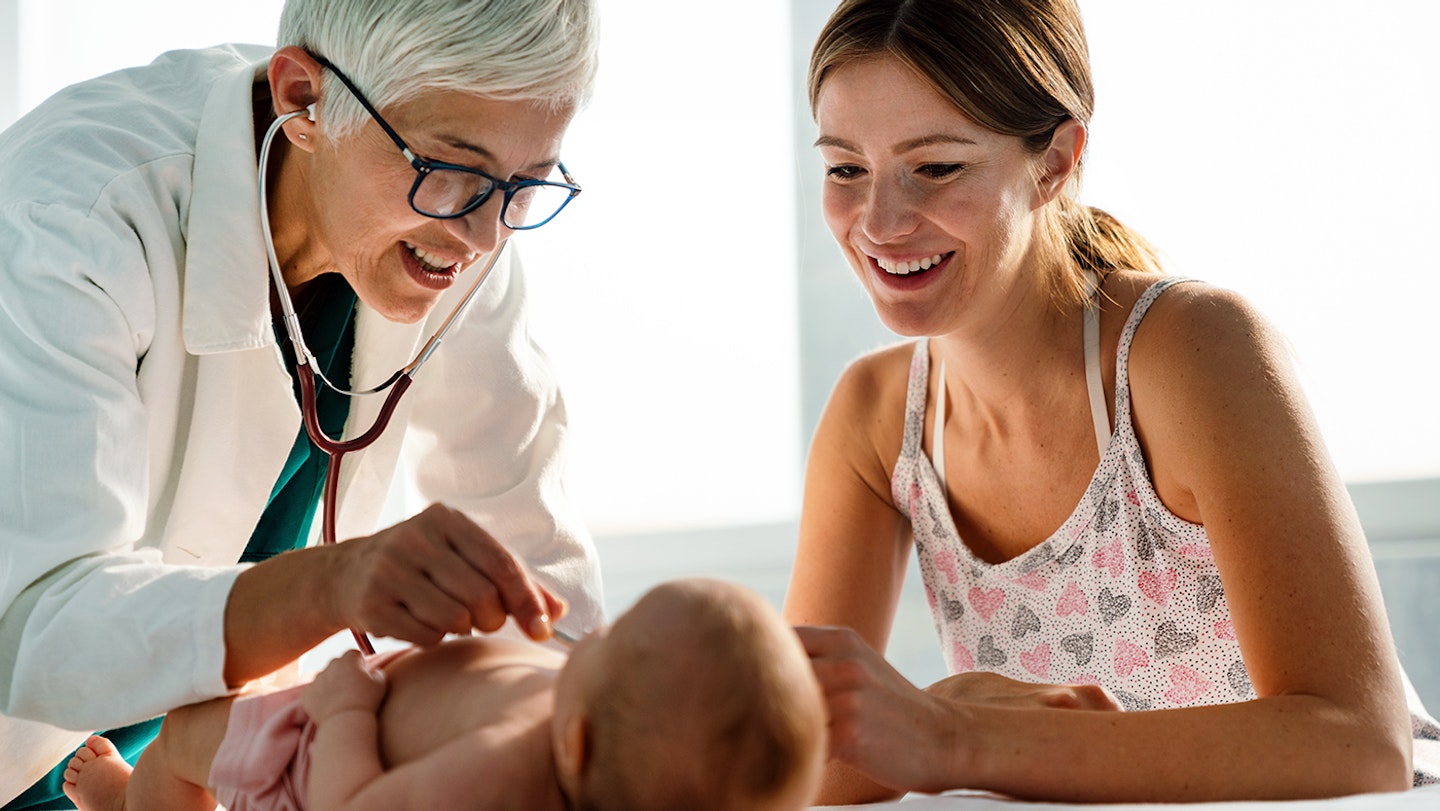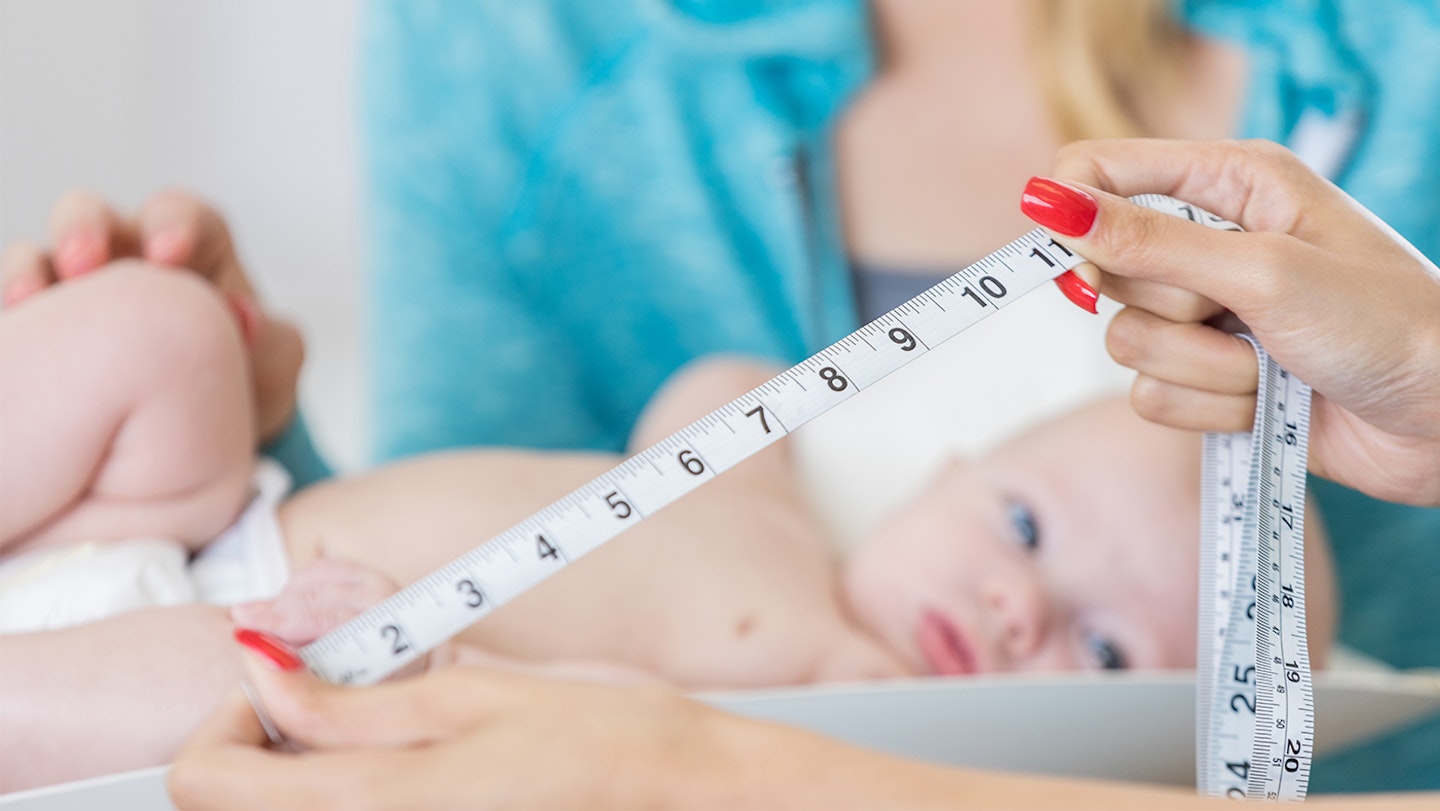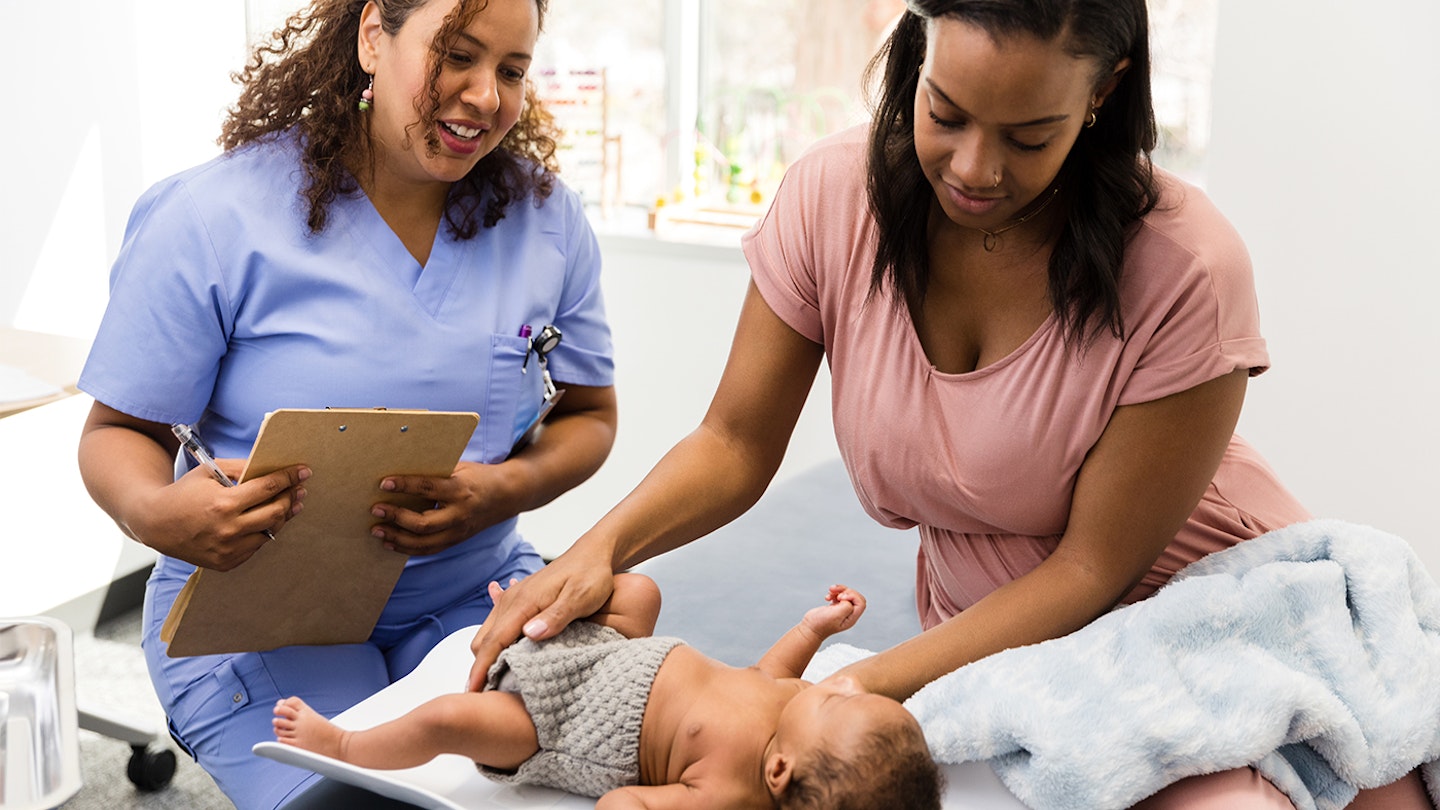Within the first 72 hours that your baby is born, your little bundle of love will have undergone a series of newborn checks to monitor their health and development. This is then followed by the 6-8 week baby check.
These checks are important as it allows any issues to be picked up early so any referrals and treatment can happen without further delay, this will improve the health and well-being of you and your baby.
What is the 6-8 week check?
The 6-8 week check happens when your child is between six weeks old and eight weeks old. It is usually performed by your GP and is a full physical examination of your baby to check that all is well, the same checks are also done within the first 72 hours of their life.
Your baby will also be offered their 8-week vaccinations so these may be incorporated into this appointment.
You may have this appointment before or after your own 6-week postnatal check but you can request a separate time if you'd prefer.
What happens at the 6-8 week baby check?
Your healthcare professional will ask you about how you feel your baby is, how you have chosen to feed and how this is going.
They'll also chat about safety when at home and ask about your baby's general responses and behaviour such as if they smile at you or follow you with their eyes.
This is a good opportunity for you to express any concerns you may have, ask any questions, and gain some reassurance if needed.

They will then examine your baby physically. These checks include:
Eyes
They will examine your baby’s eyes and may use a specially designed torch light to check how they look and move. This doesn’t test how well your baby can see but looks for any clouding that may indicate cataracts and other eye conditions.
Heart
They will use a stethoscope to listen to your baby’s heart sounds and check for a murmur, these are quite common and for most babies their heart is normal. They will also observe your baby and feel for their pulse.
Hips
They will examine your baby’s hips and how they move, this is to check for hip dysplasia which if not identified and treated can lead to joint issues and/or a limp. Hip dysplasia impacts around 1-2 / 1000 babies.
Testicles
If you have a boy then they will also examine their testicles to make sure they have descended to the scrotum, undescended testes are noted in 2-6/ 100 boys and treatment is recommended to help prevent issues in later life.
Measurements
Your baby will need to be undressed for this part of the appointment. They will be placed on special scales so their weight can be noted and their and head circumference will also be measured.

Your healthcare professional will also check:
• reflexes
• abdominal organs and belly button
• mouth and palate
• soft spots on the head (fontanelle)
Your healthcare practitioner will be able to explain what they are doing and talk you through their findings as they complete the check.
Your baby should have had their hearing checked by now as this typically happens no later than five weeks after birth but if they haven't, you should request an appointment for one.
What should I bring?
It is advisable to dress your baby in clothing you can easily slip on and off, especially if they are also having their immunisations.
It is important to bring your child health record (red) book as this will allow your GP to record their findings and see details of the previous examination.
When will my baby’s next check be?
Between 9 months old and one year old, your health visitor will check your baby again. This check looks more at their development and things such as language, physical milestones, behaviour, and weaning. They can also provide advice on safety in the home, baby nutrition, breastfeeding and returning to work and answer any other queries you may have.
About the expert
This article contains expert advice from Midwife Pip. Midwife Pip is a truly passionate midwife and advocate for the profession, bursting with knowledge. Pip is an experienced, practicing Midwifery Sister, MSc graduate, founder of Midwife Pip Podcast, Hypnobirthing and Antenatal Educator, co-author of published research and very importantly, a mum.
